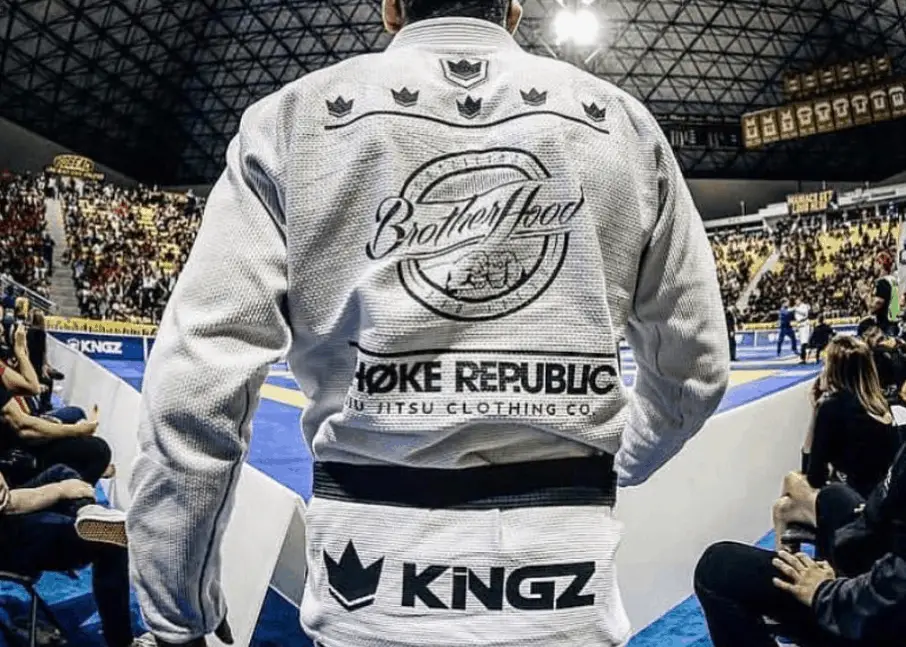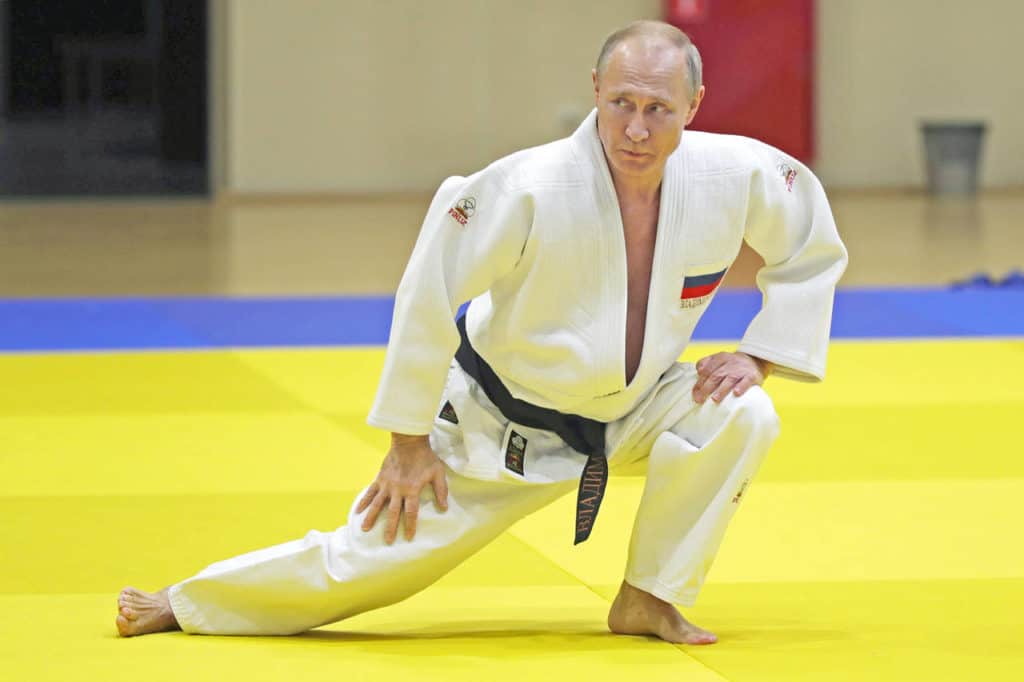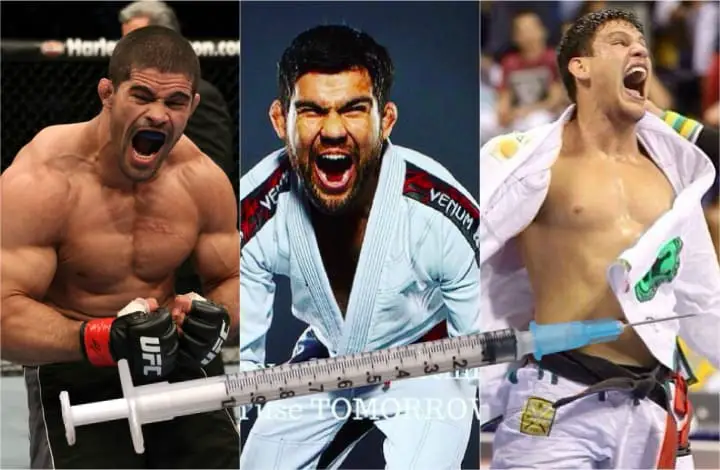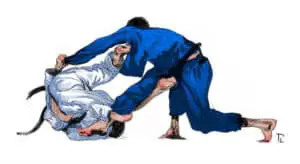BJJ is one of the fastest growing sports in the world. There are more and more gyms opening all over the world. There are hundreds of competitions held throughout the year where athletes are competing for thousands of dollars in prize money. Then why is BJJ not an Olympic sport?
Why Is BJJ Not An Olympic Sport? BJJ is not an Olympic sport because it is not popular enough, does not generate high enough sponsorship revenue, is not practiced widely in many countries, is too similar to Judo and does not have a single governing body which follows IOC regulations.
How Popular Is BJJ?

How popular is BJJ? It is difficult to come up with an accurate estimate on how popular BJJ is due to different participation rates in different countries. The IBJJF currently has 30,000 registered athletes, if 3% of BJJ practitioners are registered with the IBJJF then around 1,000,000 people are currently training BJJ globally.
1,000,000 people training BJJ around the globe may make it sound like BJJ is a very popular sport however there are a few issues. The USA and Brazil are home to at least 70%, maybe as high as 80% of BJJ athletes. BJJ is largely only watched by people who practice the sport. It is also common for many BJJ athletes to not follow the sport at all. This results in the viewership of BJJ being significantly smaller than the amount of people practicing the sport. This is uncommon in traditional sports such as soccer and football where the vast majority of fans do not play the sport.
The fact that BJJ has a small viewership and athletes largely only come from two countries is a major reason why BJJ is not an Olympic sport.
Lack of Sponsorship and Advertising Revenue in BJJ

The IOC is looking for sports which can generate the Olympics huge cash inflows through sponsorship and advertising deals. It is no wonder golf was added to the olympics as golf is a multi billion dollar industry where advertising deals are worth hundreds of millions of dollars. Unfortunately BJJ does not attract sponsorship from the biggest and most luxurious brands in the world. BJJ only attracts sponsorship from BJJ related companies, mostly manufacturers of BJJ equipment and clothing. The IOC wants to partner with sports that can fill their pockets. The lack of sponsorship and advertising BJJ can attract is preventing it from becoming an Olympic sport.
Is BJJ More Popular Than Judo?

Is BJJ More Popular Than Judo? No Judo is far more popular than BJJ. Judo is an Olympic Sport which has existed for 100 years. Judo has 159 member nations and it has been estimated that 50,000,000 people practice Judo across the world. This would mean Judo is 50x more popular than BJJ.
The fact that Judo is already an established Olympic sport with a long history and that it is similar to BJJ really hurts BJJ’s chance of becoming an Olympic Sport. BJJ is not unique enough to be included in the Olympics alongside Judo.
Now if BJJ was more popular than Judo and could bring in more revenue, then BJJ would have the potential to replace Judo in the Olympics. However the opposite is true. Why would the IOC choose to include the younger less famous poorer brother (BJJ) when it already has the famous, well established and wealthier older brother (Judo) representing the Olympics.
BJJ Does Not Have A Single Governing Body
The IOC mandates that for a sport to be included in the Olympics it must have a single governing body which establishes unified rules, procedures and forces all sport participants to abide by IOC mandates. BJJ has multiple governing bodies which are not IOC compliant particularly when it comes to drug testing and each governing body follows its own rules and procedures.
The biggest governing bodies in BJJ are the UAEJJF, ADCC and the IBJJF. The UAEJJF and ADCC are in violation of the IOC policies because they are run by the UAE government. Whereas the IBJJF is a private for profit organisation. The IOC stipulates the governing body should be a public not for profit organisation.
BJJ Does Not Have A Unified Set Of Rules
There is no single set of rules for BJJ. The IOC requires Olympic sports to have a single set of rules which all competitions follow. Each BJJ federation has its own unique set of rules. This causes confusion and prevents the sport from achieving a unity which the IOC requires. ADCC and the IBJJF have two distinct rulesets, so much so that the two could be considered different sports. If BJJ wants to become an Olympic sport it needs to agree on one set of rules otherwise it will stay an ununified fringe niche sport.
BJJ Does Not Have Strict Anti Doping Protocols

Many BJJ competitions do not do any doping testing. ADCC, one of the largest BJJ federations, does not do any drug testing. The largest BJJ federation the IBJJF only does random drug tests of the winners of their major competitions. No BJJ organisation conducts any out of competition testing.
BJJ athletes are not currently required to be tested by WADA. If BJJ wants to become an Olympic sport it must sign up to WADA and begin rigorous drug testing. Unfortunately this is not likely as the cost is very high and many athletes will not agree to be subjected to WADA’s harsh testing protocols which often see athletes being woken up at 2am and being forced to give samples or being forced to notify WADA everytime they go on holiday.
Should BJJ Be In The Olympics?
Should BJJ Be In The Olympics? If BJJ was in the Olympics there would be positives and minuses. The popularity of the sport would increase as many new people would be exposed to the art. BJJ athletes would get more recognition and more opportunity to make money through sponsorship deals.
However BJJ would be forced to follow all IOC rules and regulations. BJJ could lose its fun, relaxed, laid back culture. BJJ would be forced to change its rules to appease the IOC.
BJJ is not an Olympic Sport because it is not popular enough, does not generate enough revenue through sponsorships and advertising, is too similar to Judo and does not have a single impartial governing body overseeing the sport. The IOC has stated all these elements are crucial in becoming an Olympic sport. Until BJJ can address these issues it is unlikely BJJ will ever be featured in the Olympics.
